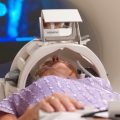Table of Contents
Bipolar disorder is a mental health condition that affects an estimated 2 million Americans. It can disrupt day-to-day activities and hinder normal functioning, affecting every facet of your life, even your relationships.
Fortunately, bipolar disorder is a very treatable disease. With the combination of medications, therapies, and healthy lifestyle changes, symptoms of bipolar disorder can be effectively managed in order for the individual to lead a normal life.
What is Ketogenic Diet?
Aside from the tried and tested methods and strategies for managing bipolar disorder, advances in our society continually provide new ways that we could explore in hopes of better outcomes. These advances include the influx of alternative therapies, such as diet changes.
One of the most popular diet now is ketogenic diets. Though it has been around for decades, it is only now showing a definite rise in popularity. And according to some studies, the elements involved in a ketogenic diet could help people with bipolar disorder.
Improving Health through Ketogenic Diet
The ketogenic diet has been around for almost a century, first cropping up in the 1920s. This diet is primarily composed of high-fat, low-carbohydrate foods that trigger a reaction in your body that imitates what happens if you were fasting. This metabolic state in your body is known as ketosis.
Sources of Energy
Carbohydrates such as glucose are the body’s main source of energy. Glucose, in particular, supplies most of the fuel the brain needs in order to function properly. When carbohydrates are removed from our diet, the body then switches to fat reserves as the main source of energy. To use fats as an energy source, the liver has to break them down into substances known as ketones. Ketones have higher energy content compared to carbohydrates.
Versions of Ketogenic Diet
Ketosis allows the body to be much more efficient in burning fats for energy. The ketones produced are then used as fuel for the brain. Ketogenic diets are known to improve health conditions as it reduces the blood sugar and insulin levels.
Ketegonic Diet Versions
The ketogenic diet has various versions.
- The standard ketogenic diet is a very low-carb, moderate-protein, and high-fat variation. The percentage is typically 75% fats, 20% protein, and 5% carbohydrates.
- The cyclical ketogenic diet, as the name suggests, cycles on ketogenic days and high-carb days. Typically, each cycle would have 5 ketogenic days followed by 2 high-carb days.
- The targeted ketogenic diet takes into account your workout sessions. It allows for more carb intake during workout days to prevent burnout.
- The high-protein ketogenic diet includes a higher protein ratio compared to the standard variation. It consists of a decreased 60% fats compared to the standard 75%. The protein content is at 35% while the carbohydrates remain at 5%.
How the Ketogenic Diet May Help the Brain
The ketogenic diet began as a tool for improving and treating certain neurological diseases. Indeed, further research has found that it can help with certain brain conditions.
- Alzheimer’s Disease – The ketogenic diets has been shown to help reduce symptoms of Alzheimer’s disease as well as slow down its progression.
- Epilepsy – Research has shown that the ketogenic diet can help reduce the number of seizures experience by children with epilepsy.
- Parkinson’s Disease – The ketogenic diet has been shown to help manage the symptoms of Parkinson’s Disease.
Aside from these diseases, the ketogenic diet has been shown to help improve risk factors for heart disease, including HDL cholesterol levels, blood sugar levels, and blood pressure. Some also say that this diet can reduce concussions and aid in faster recovery from brain injuries.
Ketogenic Diet for Bipolar Disorder
Anti-seizure medicines, the same drugs used to treat people with epilepsy, are fixtures of bipolar disorder treatment. This made researchers wonder if a diet that helps with epilepsy symptoms could also help people with bipolar disorder.
There’s reason to believe it can. During a depressed or manic episode, energy production slows in the brain. Eating ketogenic diets can increase energy in the brain.
Can the Ketogenic Diet Help with Bipolar Disorder?
Given how ketogenic diet has been helping with other conditions involving the brain, it can also theoretically aid in managing bipolar disorder. However, little reason has been done on the subject matter.
Regardless, it should be noted that ketogenic diet has shown potential in improving one’s well-being. For a conclusive answer on how ketogenic diets can help the bipolar disorder population, further studies would have to be conducted.
Should You Try a Ketogenic Diet?
Making healthy lifestyle changes is one of the strategies for leading a better life. There is potential for ketogenic diet to help with managing bipolar disorder, but since the research is limited, it’s best for you to keep to a well-balanced diet in the meantime. The ketogenic diet can be very limiting, with lots of restrictions placed. This could lead to nutritional deficiencies that would certainly be detrimental to your health in the long run.
If you want to try a ketogenic diet, you should consult with your doctor first. It is such a drastic shift from a regular diet, so proper preparation is important. Your doctor may also instead suggest another treatment option if a ketogenic diets is not feasible for you.






 I love to write medical education books. My books are written for everyone in an easy to read and understandable style.
I love to write medical education books. My books are written for everyone in an easy to read and understandable style.